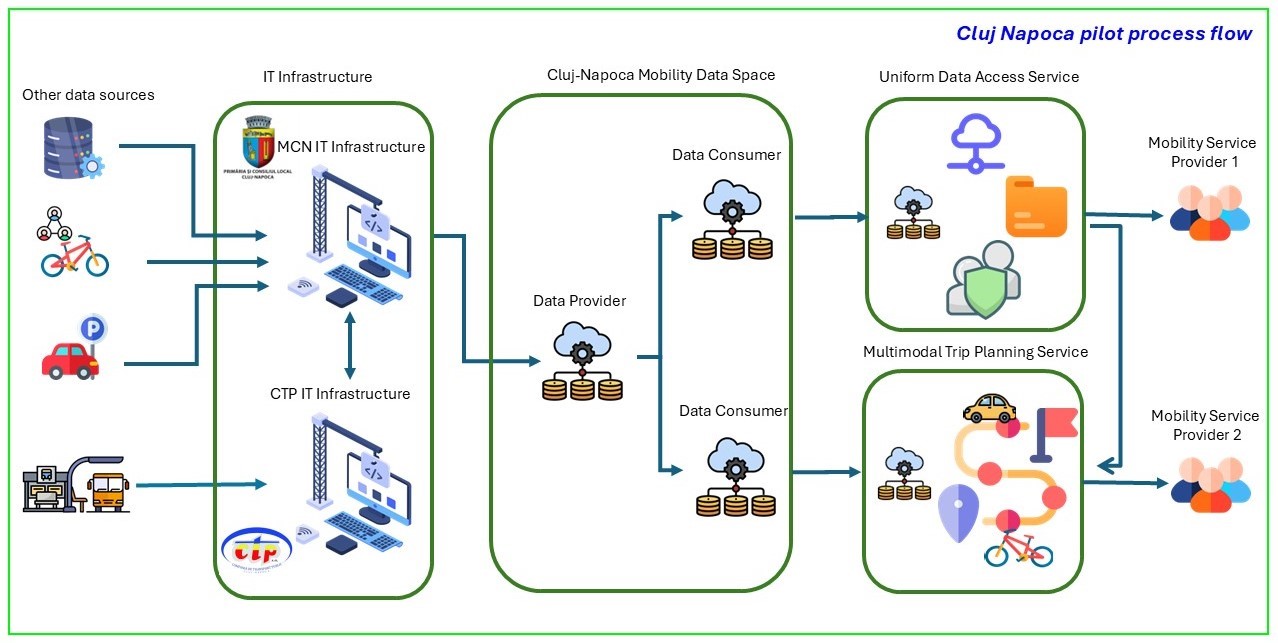Cluj-Napoca Use Case

The Cluj-Napoca Use Case focuses on enhancing public transport and establishing a long-term, open mobility data-sharing platform. Cluj-Napoca, Romania’s second-largest city, has experienced significant population growth over the past decade and is recognized as one of the most digitally advanced cities in the country. It already provides commuters with a user-friendly mobile application that offers seamless navigation and real-time updates for the public transport network. However, the rapid increase in population has put pressure on the city to further improve its public transportation system.
A key challenge, identified in the city’s Sustainable Urban Mobility Plan (SUMP), is the lack of data sharing and coordination between different public and private transportation operators that serve Cluj-Napoca and its surrounding areas. Cluj-Napoca’s extensive public transit system, managed by the Public Transport Company (CTP), services the city and six neighboring communes. CTP controls these services through its own infrastructure and is actively working to improve the fleet and routes in line with national and European regulations on urban mobility, sustainable transport, and the reduction of traditional fuel use.
Currently, buses and trams are the primary modes of public transport in Cluj-Napoca. In addition, the city has implemented a bike-sharing system to promote eco-friendly travel. With bike stations spread throughout the city, residents have easy access to bicycles, providing a cleaner, sustainable transportation alternative. The city has also developed covered parking areas in key locations, reducing on-street parking demand and easing traffic congestion.
The future of Cluj-Napoca’s public transportation system under the DELPHI project envisions a fully integrated, data-driven mobility ecosystem. The core of this transformation will be a centralized IT platform that unifies data from various transportation services, including buses, trams, bike-sharing systems, and parking facilities. This platform will aggregate and standardize the data, ensuring compliance with global open data standards for better accessibility and interoperability. Continuous monitoring and user feedback will be used to refine the platform, making Cluj-Napoca’s urban mobility more efficient, sustainable, and responsive to its citizens’ needs.


